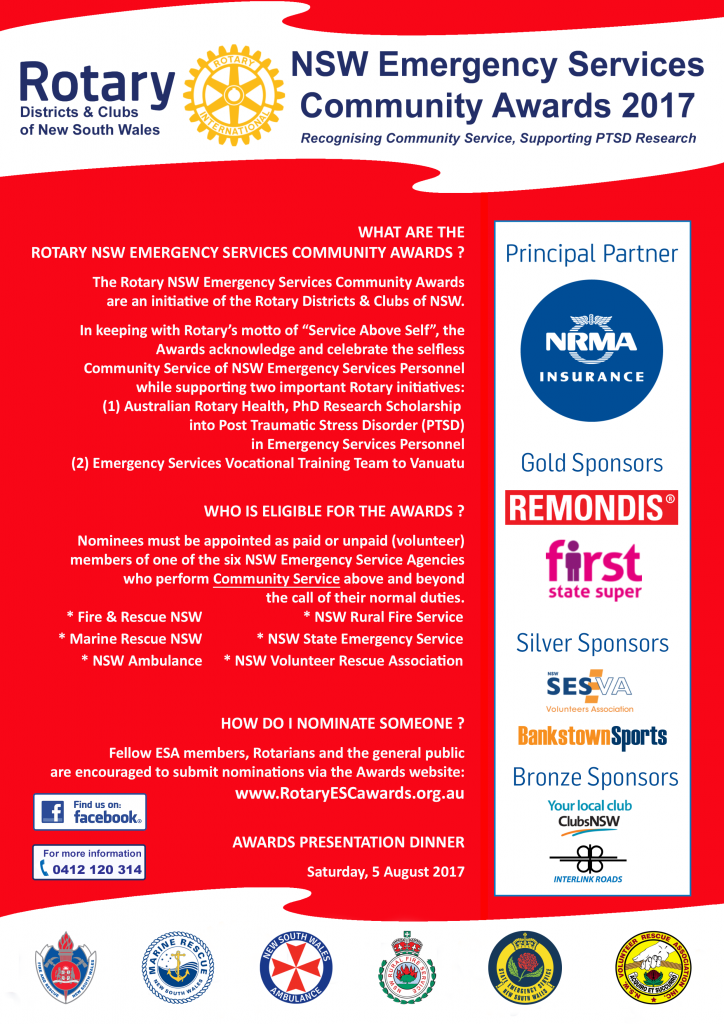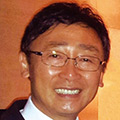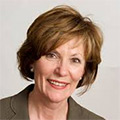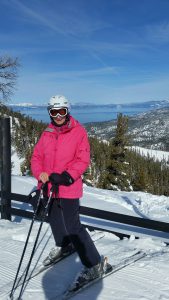The Rotary Clubs of NSW Police Officer of the year and Emergency Services Community Awards
Our Club can nominate a police officer or emergency services officer to be considered for these awards. Just email me if you think you know someone who we should nominate.
The NSW Police Officer of the year details are in this link – rotary-2017-flyer-a5-2up
Details of the NSW Emergency Services Community Awards are in the flyer below:

From Rotary Scholar to Peace Corps
Please note the organisation KIVA that may be an avenue for our Club to achieve a positive presence for Rotary and assist individuals that we select to achieve their goals.

By Jasmine Segall, former Rotary global grant scholar
I have heard a variety of interesting stories about why the rural Costa Rican town I live in as a Peace Corps volunteer is called Monterrey. My favorite is the literal translation: “King of the Grass,” explained by a wizened elderly gentleman as the place his family settled to farm cattle because of its nutritious vegetation. On a good day, I can get a clear view of the Arenal Volcano and see the lush farmland that stretches endlessly below. The view is breathtaking. It truly is a green kingdom.
My path to becoming a “loyal subject” of Monterrey was influenced by a lifelong involvement in community service. I grew up participating in the Girl Scouts, 4-H, and Key Club. As an undergraduate at the University of California, Berkeley, I volunteered at Kiva – a nonprofit that makes small loans to empower entrepreneurs around the world.
One of the highlights of my undergraduate experience was starting a student group that partnered with Kiva to offer no-interest microloans to low-income entrepreneurs in Oakland, California, USA. Our first borrower used the profits generated from her microloan to fund her son’s college education. As I am the daughter of a university professor, being able to impact someone’s life this way left a powerful impression. The experience cemented my commitment to a career in local economic development.
A Rotary global grant made possible my dream of obtaining a Master of Science in Local Economic Development at the London School of Economics. Being exposed to such a diversity of international development theories and change-makers made my time in London one of the most inspiring periods of my life. Meeting Rotarians with an incredible dedication to service at both the Berkeley Rotary Club, which sponsored my global grant, and the Sidcup Rotary Club, which hosted me in the UK, reaffirmed my commitment to dedicating my own life to service. It was actually the experience of earning a master’s degree that gave me the confidence to apply to the Peace Corps.

Jasmine Segall, center, at a rally to defend children’s rights.
I have been serving as a Peace Corps Community Economic Development volunteer for almost a year now, and my primary focus is promoting women’s empowerment and entrepreneurship. Examples of some projects I work on include helping a small women’s group plan a sewing business and partnering with Grameen Bank to offer business coaching to female microloan borrowers.
One of my best friends and co-workers here in Costa Rica is a mother of four who works as a professional clown and volunteers for the national social service organization to entertain some of the poorest children in Costa Rica. Her life story is incredible. For someone who struggles to feed her children as a single mother, her passion for helping other children both humbles and inspires me.
Rotary has left a profound impression on me, as will my time as a Peace Corps volunteer. I can only hope that the next step will be similarly rewarding.
Read the Rotary-Peace Corps partnership fact sheet for collaboration opportunities for clubs and districts. If you’re attending the 2017 Rotary Convention in Atlanta, visit the Peace Corps booth in the House of Friendship and attend a Rotary-Peace Corps breakout session to learn more about the partnership. Email [email protected] if you have any questions.
Rotarian Returned Peace Corps Volunteers are invited to District 5450’s Rotary-Peace Corps workshop on 4 August 2017 in Denver, Colorado, USA. Contact Charlie Hunt or Steve Werner for more information and to register for the workshop.


 By Annemarie Mostert, a member of the E-club of Southern Africa
By Annemarie Mostert, a member of the E-club of Southern Africa









